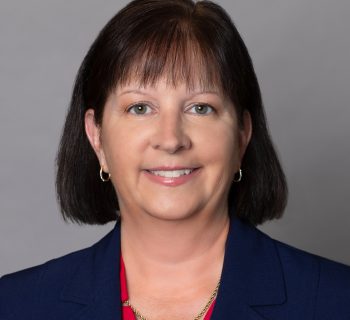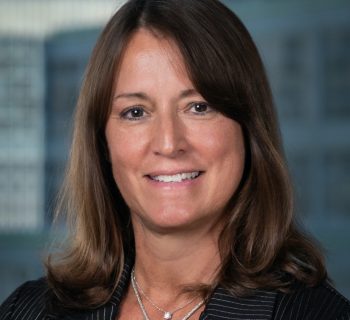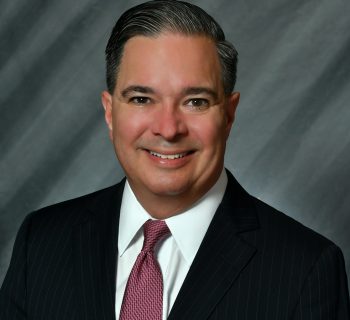“Read, listen and learn.” Those words, along with great support from family and counselors, guided Kim Boyle. Kim speaks highly of her education that started at home and took her out of New Orleans to experience the East Coast, knowing that she would always come home to give back to her community. As the first African American president for the New Orleans Bar Association and the first female African American president of the Louisiana State Bar Association, Kim seeks to return the guidance that set her on the path to a distinguished career centered on leadership and mentorship.
Why Education Is the Key
Kim focuses much of her legal practice and her civic involvement on education. As she puts it, “education changes lives on multiple levels. It expands the way we think about the world and other people. It opens our eyes to look at things from a broader perspective.” Kim discovered this at an early age, thanks to being a self-described “voracious reader.”
In addition to greater understanding, education brings new opportunities. Kim credits her early mentors with instilling this mindset in her. Growing up in a family where education was very important, her parents and relatives encouraged her to take advantage of every opportunity. Her high school guidance counselor did the same, pushing her to think outside the box beyond just local college opportunities. She encouraged Kim to meet with a recruiter from Princeton, which would become her alma mater.
She continued to broaden her horizons at Princeton, where she met students from around the world. Kim stayed on the East Coast for law school, but then came home to New Orleans, where she always knew she wanted to practice and work on issues that could impact others, especially those related to creating greater opportunities for individuals of color professionally and in our society.
Advancing Diversity in Education
Kim remembers those who pushed her to excel and dedicates her time to attempt to be a champion for the next generation. Having served on the boards of Princeton, and currently Dillard and Tulane, she finds that educational institutions are finally making strides toward diversity and inclusion. These institutions are addressing their history and turning those conversations into initiatives to promote diversity.
Tulane created a naming commission that analyzed historical records to find alumni who should be recognized for their work on equity and inclusion. As the Chair of the Amistad Research Center and a member of Tulane’s Executive Committee, Kim attended the commission’s first act, the renaming of Tulane’s Willow Residences after the first African American undergraduates to earn degrees from Newcomb College and Tulane, Dr. Deidre Dumas Labat and Reynold T. Décou. After the dedication ceremony led by Tulane President Mike Fitts, Kim moderated a discussion between the two about their experiences at the newly integrated schools, an experience that she says was eye-opening. Educating others by recognizing the discrimination these students endured and sharing their story is important to move diversity and inclusion forward in a meaningful way.
Deliberate and Intentional Leadership
Education opens the door for many, and deliberate and intentional mentorship is the next step to create a path to success for diverse lawyers. Kim notes her relationship with Nan Alessandra and the role Nan played as not just a mentor but as a sponsor of Kim’s development as a partner at Phelps. Nan led Phelps’ New Orleans Labor and Employment group when Kim joined the firm. She immediately set formal meetings with other lawyers in the firm and introduced Kim to clients. Nan also turned over substantive opportunities with key clients to Kim—opportunities Nan could have kept for herself but knew that Kim was qualified to handle.
Sponsors and organizations should make opportunities available, but they can’t stop there. They also need to provide the support and structure to ensure these opportunities are successful. Kim quotes a friend who always said, “Lead, follow or get out of the way.” Kim considers Nan the epitome of this mantra and recognizes that the leadership at Phelps continues to lead and stay ahead of the curve in addressing these critical issues.
Do the Right Thing, Because It’s the Right Thing to Do
As an active member of professional organizations and a lawyer that advises businesses on employment practices—mainly avoiding discrimination—Kim leads by example. Seventy-five years after its founding, she was named the first African American president for the New Orleans Bar Association and seven years later, the first female African American president of the Louisiana State Bar Association. She dedicates her time and talents to elevate the profession and serves as an example to the businesses she represents.
Her advice to young lawyers mimics the advice she gives to her clients. While we all should understand the necessity of a diverse work environment from a business standpoint, we should also “do the right thing, because it’s the right thing to do.” This experience is informed first-hand as a lawyer dealing with workplace harassment and discrimination. Her advice to professional organizations and businesses is as simple as the Golden Rule. Put yourself in someone else’s shoes and let that experience inform your actions and decisions. This perspective will lead to a good organizational model and healthy operations. That makes for a successful base for your organization.
Kim is involved in several initiatives to move institutions forward on these issues, and not just educational institutions. She also works with local health care systems, other nonprofits and Phelps to advance diversity and inclusion in our society.
What Businesses Can Do to Move the Needle
With an inside view of how educational institutions, health care facilities, nonprofits and law firms operate, Kim feels confident that we are now attempting to cultivate a culture of inclusivity. People want to create diverse and inclusive environments and are committed to this goal. She says the bottom line is being conscious of the issue and knowing that there is significantly more work still to be done. “You cannot fix a problem if you don’t know or acknowledge that it exists,” she says. Companies should acknowledge issues, put forth a substantive plan, have accountability and regularly re-evaluate the plan and process to make sure it’s working.
Pay it Forward
Kim admires the members of the generation before her who did everything they could to make sure her generation had the opportunities they didn’t have growing up in the segregated South. Her parents sacrificed a lot to send her to Princeton, and as Kim said, “they pushed us to do more and have more opportunities than they did.” Emulating the commitment and hard work of individuals such as Justices Anderson and Banks at Phelps, as well as Justices Ortique, Johnson and so many other giants who have made significant and positive differences, Kim’s focus now is to leave her community and her profession better than she found it. This includes mentoring the next generation on the importance of education as a way not just to unlock opportunities, but also to learn about other people.
Many in the younger generation are advocating for themselves and making it clear that they won’t tolerate what’s happened in the past. But we all have an obligation to try and understand the issues surrounding diversity. Kim emphasizes the importance of this type of education and offers this advice for young lawyers:
- “Read, listen and learn.” If you want to be someone who leads with integrity and fairness, it is critical that you educate yourself about these important issues and understand that the playing field has not always been even. Know what is happening, what has happened in the past and how other people may see things. All three of those steps are equally important.
- Advocate for a better future and leave the world better than you found it. If you want your fellow citizens to have equal opportunities, then you should want to know more about this country’s history and how it impacts where we are today. Take actionable steps to be a sponsor for diversity and inclusion. Nothing changes without us taking affirmative actions to change it.
The story of Kim Boyle is a great American story of the daughter of a postal worker and public school teacher who earned an Ivy League education and came back to her hometown to make a difference. Her diverse practice includes teaching at Loyola Law School, a seat on New Orleans Civil District Court and thirty years of private practice. Her involvement outside of the office matches her dedication to her clients. Through her actions and example, she continues to pave the way for young lawyers in her mission to leave her community and her profession better than she found it.
This article was originally published by Phelps Dunbar LLP on March 29, 2021. © 2021 Phelps Dunbar LLP. All Rights Reserved.
Louisiana Fellow Kim M. Boyle practices in the areas of labor and employment, civil rights, constitutional law, commercial, tort and general litigation at Phelps Dunbar LLP in New Orleans. Her employment practice includes representing employers in employment related claims, such as retaliation and discrimination claims as well as workplace harassment. She also handles EEOC charges and other administrative complaints through the administrative and judicial process. Her practice also includes the representation of public and private clients in a variety of commercial disputes, including breach of contract, business torts, misappropriation of trade secrets, unfair trade practices and class actions, as well as representation of a number of governmental entities on an array of legal issues. Kim is known for her persuasive oral argument skills in both trial and appellate courts, and for her ability to take a matter from inception through verdict at trial by jury or judge. Many of the matters Kim handles have been resolved through trial, and she has completed a number of oral arguments before state and federal appellate courts. She speaks often on employment-related topics, litigation and issues of procedure, as well as ethics and professionalism issues.








